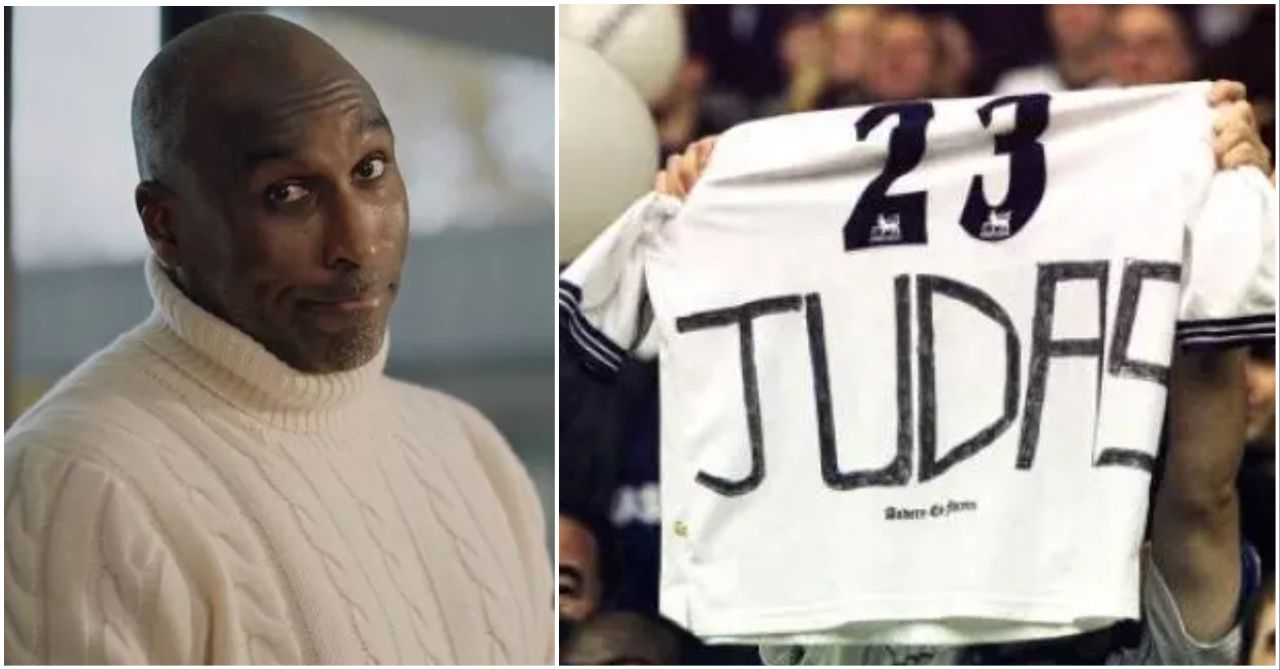Summary
Five players who ruined their legacy at Tottenham have been ranked.
Sol Campbell was labelled as Judas following his free trnasfer to Arsenal.
Campbell's move was not the only one that upset Spurs fans.
Tottenham is a club that, regardless of what you think of their performances on the pitch and their status off it, has an incredibly passionate fanbase. Having spent much of their history being viewed as the second-biggest club in North London, Spurs fans are very protective of their crest and those who adorn it, through thick and thin, which is why many players grow to have an affinity with the supporters and earn a cult-like status after years of hard work
Football is not a game for loyalty though. While there are rare examples, most players will leave to benefit their own careers and do not care who they hurt in the process. And for these former Spurs players, things they have done have meant that they have tarnished their legacies on the white side of North London, with some even earning legendary status before burning it to the ground.
Pat Jennings was one of the first high-profile player to make the controversial switch from Tottenham to Arsenal, crossing the fierce North London divide in 1977. Despite being a legendary figure at Spurs, manager Keith Burkinshaw believed the veteran goalkeeper was past his prime and allowed him to leave.
Jennings, however, defied expectations. He spent eight successful years at Arsenal, proving he still had plenty to offer at the top level. His crowning moment in red came in 1979, when he helped the Gunners lift the FA Cup in a dramatic final against Manchester United. For many Spurs fans, his departure was painful—not just because he left, but because he thrived with their greatest rivals after being deemed expendable. However, the fact that it wasn't solely his decision to leave the club is why his legacy isn't tarnished quite as much as other people's.
Dimitar Berbatov's departure from Tottenham Hotspur remains one of the most controversial chapters in the club’s modern history. Signed from Bayer Leverkusen for a then-record fee for a Bulgarian player, Berbatov quickly established himself as a striker of rare elegance and composure, even if he admitted years later not to have been thrilled by the prospect of moving to the club in the first place.
During his two seasons in North London, Berbatov blossomed into a top-tier talent, becoming a vital figure in Spurs’ attack. But as interest from Manchester United grew, so did tensions. Berbatov made no secret of his desire to join Sir Alex Ferguson's side, and what followed was a drawn-out and uncomfortable transfer saga. His behaviour in the final weeks—marked by detachment and an apparent loss of motivation—left a sour taste for many at the club. Dropped from the squad as the situation escalated, Berbatov ultimately sealed a £30.75 million move to Old Trafford on the final day of the 2008 summer transfer window.
To this day, Berbatov’s exit is remembered not just for its impact on the pitch, but for the manner in which it unfolded. While some Spurs supporters have long since moved on, others still view his departure as a turning point—when a beloved player openly challenged the club's authority to engineer his own exit.
As a player, Jason Cundy's Tottenham career was hardly remarkable, so it is not for that reason that he gets on the list. Nor is it that he completed a treacherous transfer away from the club. In fact, almost half the time he spent contracted at White Hart Lane, he was on loan. Instead, it is his actions towards the club after his career that have irked fans the most.
Cundy is now one of the most recognisable pundits in British football, and his radio work for talkSPORT, while entertaining, usually involves him irritating fans and acting as a wind-up merchant. And despite the fact that he played for the club, the Chelsea fan is often the first to poke fun at Spurs, usually at Jamie O'Hara's expense, which infuriates fans due to the disrespect from a former player who earned a living without doing much to inspire.
Another example of a player who decided to move on to bigger and better things. Though he is cemented as one of the best midfielders in football history, Luka Modric’s departure from Tottenham Hotspur left a bitter taste for many fans. Signed in 2008 for a then joint-club record fee of £16.5 million, he quickly evolved into a world-class playmaker, drawing attention from Europe’s elite.
As Real Madrid intensified their pursuit, Modric made his intentions clear—refusing to train in an attempt to force a move. His actions, seen by many as disrespectful and unprofessional, fractured his relationship with Spurs supporters. While his talent was undeniable, the manner of his exit overshadowed his achievements in North London. We're sure the countless medals and the Ballon d'Or sitting in his trophy cabinet can help with that.
Before his shocking switch to Arsenal, Sol Campbell was considered one of Tottenham’s finest academy products, making over 300 appearances and winning the 1999 League Cup. Spurs offered him a record-breaking contract to stay, expecting loyalty from a player they had nurtured. But after a disappointing 12th-place finish in 2000/01, Campbell chose to leave in search of Champions League football to boost his England prospects.
Though speculation linked him with a move abroad, his decision to join arch-rivals Arsenal stunned the football world and enraged Spurs fans. Leaving on a free transfer only deepened the betrayal. For many supporters, it wasn’t just a departure—it was a seismic act of disloyalty from a player they once saw as a future club legend.
